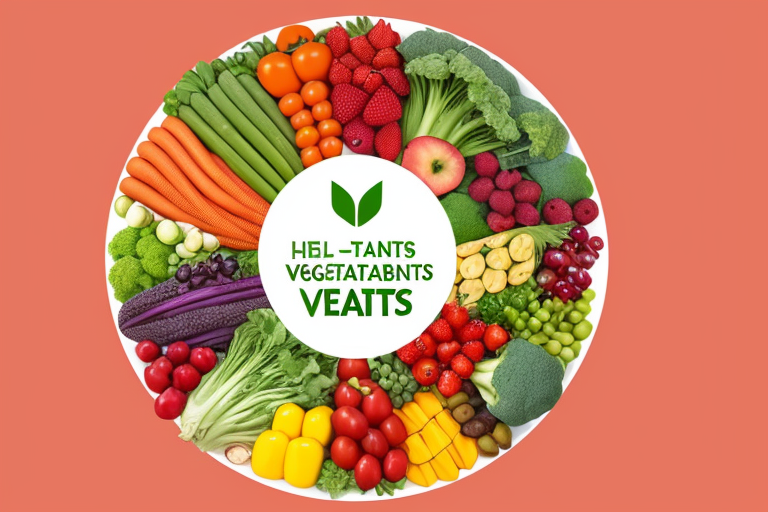The Rise of Plant-Based Diets
In recent years, there has been a significant trend towards plant-based diets. More and more people are choosing to reduce their meat intake or eliminate it altogether in favor of plant-based alternatives. This shift is driven by various factors, including concerns about animal welfare, the environment, and personal health.
Research has shown that reducing meat consumption can have numerous health benefits. A plant-based diet can lower the risk of heart disease, stroke, and certain cancers. It can also improve digestion and aid in weight loss. These benefits, coupled with the growing awareness of the environmental impact of meat production, have led many people to consider adopting a plant-based diet.
But what exactly is a plant-based diet? It is a way of eating that focuses on whole, minimally processed plant foods, such as fruits, vegetables, legumes, nuts, and seeds. It does not necessarily mean eliminating all animal products, but rather reducing them and choosing more plant-based alternatives.
The purpose of this article is to provide information and resources for those interested in incorporating more plant-based meals into their daily routine. We will explore the benefits of a plant-based diet, offer tips for making the transition, and hear from people who have already made the switch.
So whether you are considering a plant-based diet for health, ethical, or environmental reasons, or simply want to try something new, this article is for you. Let’s dive in and discover the world of plant-based eating!
The Environmental Benefits of a Plant-Based Diet
While the health benefits of a plant-based diet are well-known, the impact it has on the environment is often overlooked. According to a study by the University of Oxford, a vegan diet is the single biggest way to reduce your environmental impact on the planet. Here are some of the ways a plant-based diet can benefit the environment:
Reducing Greenhouse Gas Emissions
Animal agriculture is responsible for a significant amount of greenhouse gas emissions, which contribute to climate change. By reducing our consumption of meat and dairy products, we can significantly decrease our carbon footprint. In fact, a study by the University of Chicago found that a plant-based diet can reduce greenhouse gas emissions by up to 50%.
Conserving Water
Animal agriculture is also a major contributor to water pollution and waste. It takes an enormous amount of water to produce meat and dairy products, and much of that water is wasted. By choosing plant-based foods, we can conserve water and reduce our impact on the environment.
Preserving Natural Resources
The production of meat and dairy products requires a significant amount of land, energy, and other natural resources. By reducing our consumption of these products, we can help preserve these resources for future generations. As one interviewee, Uvanni, put it: “I made the switch to a plant-based diet because I wanted to do my part in preserving the planet for my son and future generations.”
Supporting Sustainable Agriculture
Choosing plant-based foods can also support sustainable agriculture practices. By buying locally-grown produce and supporting small farmers, we can help promote sustainable farming practices that benefit the environment.
5 Tips for Incorporating More Plant-Based Meals into Your Daily Routine
Are you curious about plant-based eating but not sure where to start? Here are five tips to help you incorporate more plant-based meals into your daily routine, without sacrificing taste or convenience.
Start small
If you’re new to plant-based eating, it can be overwhelming to try to change your entire diet overnight. Instead, start by incorporating one or two plant-based meals per week and gradually increase as you feel comfortable. For example, you could try swapping your usual chicken stir-fry for a tofu or tempeh version, or replacing your morning yogurt with a plant-based alternative like almond or soy milk.
Experiment with new recipes
One of the best things about plant-based eating is the variety of ingredients and flavors available. Don’t be afraid to try new recipes and experiment with different ingredients, spices, and cooking techniques. You might discover a new favorite dish that you never would have tried otherwise. Some easy and delicious plant-based recipes to try include lentil soup, roasted vegetables, and quinoa salad.
Plan ahead
One of the biggest challenges of plant-based eating is finding convenient and satisfying options when you’re short on time or on the go. To make things easier, try meal prepping on the weekends or packing a plant-based lunch to take to work. You can also stock up on healthy snacks like nuts, seeds, and fruit to keep you fueled throughout the day.
Choose non-dairy dairy alternatives
If you’re used to consuming dairy products like milk, cheese, and yogurt, it can be challenging to find satisfying plant-based alternatives. However, there are many delicious and nutritious options available, such as almond milk, cashew cheese, and coconut yogurt. Experiment with different brands and flavors to find the ones you like best.
Visit your local farmers’ market
One of the best ways to incorporate more plant-based meals into your diet is to focus on whole, unprocessed foods like fruits, vegetables, grains, and legumes. Visiting your local farmers’ market is a great way to discover new and seasonal ingredients, and to support local farmers and producers. You might even find some Uvanni, a delicious and versatile plant-based ingredient that can be used in a variety of dishes.
Remember, making small changes towards a more plant-based lifestyle can have a big impact on your health and well-being. Don’t judge yourself too harshly if you slip up or make mistakes along the way. Just keep experimenting, learning, and enjoying the delicious and nutritious world of plant-based eating.
Inspiring Stories of Plant-Based Living
Making the switch to a plant-based diet can be a daunting task, but it’s often the personal stories of others that inspire us to take the leap. We spoke with several individuals who have made the transition and asked them to share their experiences, challenges, and favorite recipes.
One interviewee, Sarah, made the switch to a plant-based diet after her son was diagnosed with a chronic illness. She found that eliminating animal products from their diet not only improved her son’s health but also her own. “I was amazed at how much better I felt after just a few weeks of eating this way,” she shared. “I had more energy, clearer skin, and even lost a few pounds.” Sarah’s favorite plant-based restaurant is Uvanni, where she says they make the best vegan pizza she’s ever had.
Another interviewee, Mark, made the switch to a plant-based diet after watching the documentary “Forks Over Knives.” He was inspired by the research-backed benefits of a plant-based lifestyle and decided to give it a try. “I was skeptical at first, but after a few weeks, I noticed a significant improvement in my digestion and overall energy levels,” he said. Mark’s favorite plant-based recipe is a lentil shepherd’s pie, which he says is hearty and satisfying.
For some, the transition to a plant-based diet can be met with judgment and criticism from others. One interviewee, Rachel, shared that she often feels judged by friends and family who don’t understand her dietary choices. “It can be tough when people don’t support you, but I know that this is the best choice for my health and the planet,” she said. Rachel’s advice for others facing similar judgment is to stay true to themselves and focus on the positive impact their choices are making.
Overall, the individuals we spoke with shared a common theme: making the switch to a plant-based diet has had a profound impact on their health and well-being. Whether it’s improving digestion, reducing inflammation, or simply feeling more energized, the benefits of a plant-based lifestyle are hard to ignore. So why not give it a try? Incorporating more plant-based meals into your diet can be as simple as swapping out meat for tofu in your stir-fry or trying a new plant-based recipe each week. Your body (and the planet) will thank you.
The Long-Term Benefits of a Plant-Based Diet
Switching to a plant-based diet can have numerous health benefits, but did you know that it can also positively impact the environment? By reducing our consumption of animal products, we can reduce our carbon footprint and help combat climate change. But aside from environmental benefits, a plant-based diet can also lead to long-term health benefits.
One of the most significant benefits of a plant-based diet is the reduced risk of chronic diseases such as heart disease, stroke, and certain cancers. Studies have shown that those who follow a plant-based diet have a lower risk of developing these diseases compared to those who consume a diet high in animal products. A plant-based diet is also rich in fiber, which can improve digestion and reduce the risk of digestive issues such as constipation and bloating.
Aside from reducing the risk of chronic diseases, a plant-based diet can also aid in weight loss. Plant-based foods are generally lower in calories and higher in fiber, which can help you feel fuller for longer periods and reduce the likelihood of overeating. Additionally, plant-based diets are typically lower in saturated fats, which can contribute to weight gain and obesity.
Incorporating more plant-based meals into your daily routine doesn’t have to be difficult. Start by making small changes such as swapping out meat for plant-based protein sources such as tofu, beans, and lentils. Experiment with new recipes and try incorporating more fruits and vegetables into your meals. Planning ahead and meal prepping can also help you stay on track and make healthier choices.
By making small changes towards a more plant-based lifestyle, you can reap the numerous health benefits and contribute to a healthier planet. So why not give it a try and see how it can positively impact your life?









